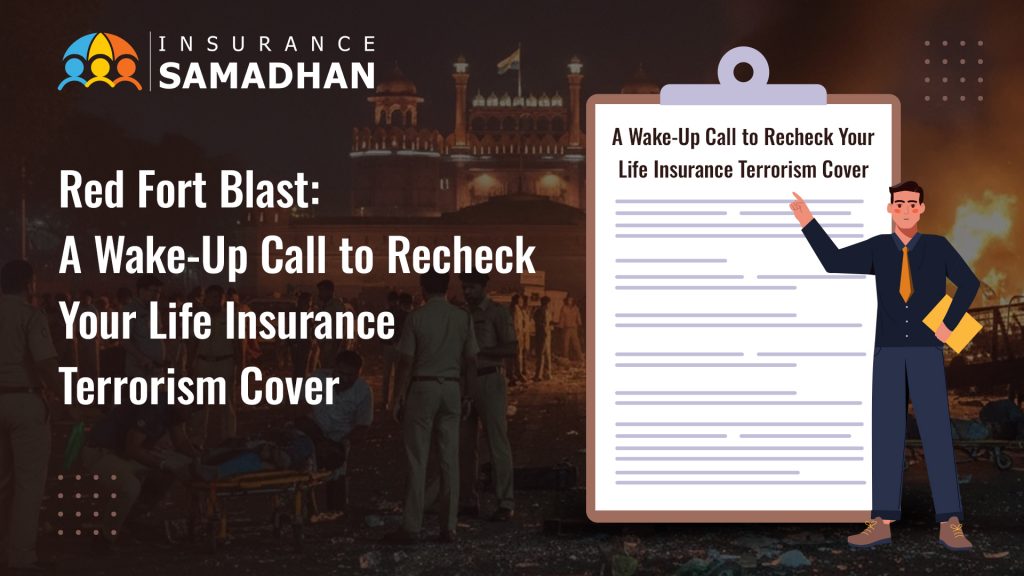The recent blast near the Red Fort in Delhi, suspected to be an act of terrorism, has shaken the country once again. While authorities continue to investigate, the incident has brought an important issue back into public conversation: How financially protected are we against unpredictable, high-impact events like terror attacks?
In moments like these, two emotions take over — fear and uncertainty. But for families, the long-term fear is also financial insecurity. At Insurance Samadhan, we consistently hear one question after major terror incidents:

Does my life insurance policy cover death due to terrorism?
The answer is: Yes. Terrorism is covered in all individual life insurance policies in India.
This has been the case since 2001, when insurers adopted a unified approach to ensure that policyholders and their families are protected even in the worst circumstances. Terrorism is not an exclusion in life insurance. The beneficiary is entitled to the claim amount if the insured loses their life in such an incident.
Why This Matters After the Red Fort Blast
The blast near one of India’s most iconic monuments is a reminder that uncertainty can strike unexpectedly. While we cannot control such events, we can ensure that our families remain financially secure.
Many people wrongly assume that terror-related incidents require:
- a special rider,
- an add-on, or
- a separate policy.
This is a myth.
A terror rider is not required in individual life insurance because such incidents are already part of the basic policy coverage.
The Only Real Condition: Honest Disclosure
Life insurance works on the principle of utmost good faith. This means every important detail must be truthfully disclosed — especially high-risk occupations.
If you work in areas such as:
- Defence services
- Counter-terror or bomb disposal units
- Special operations
- Aviation security
- Private security in high-risk zones
- Critical border postings
you must declare it at the time of buying the policy.
This ensures:
- Correct risk assessment
- Fair underwriting
- Smooth claim settlement
- No disputes in the future
Non-disclosure is the #1 reason for claim delays in terror-related cases — not the exclusion of terrorism.
Confusion Around “War or Invasion” Exclusions
Many policies mention exclusions like war, invasion, or acts of foreign enemies, which creates confusion.
Here is the clarity:
✔️ Terrorism is not classified as “war”.
✔️ Life insurers do not exclude terrorism under these clauses.
✔️ Modern individual term policies do not mention terrorism as an exclusion.
✔️ Only some Group Term Insurance (given by employers) may have limitations depending on the master contract.
The Red Fort blast shows why policyholders must understand this difference clearly.
Final Word: Preparedness Is Protection
Events like the Red Fort blast are tragic reminders of the unpredictable world we live in. While we cannot prevent such incidents, we can ensure our families never face financial hardship because of them.
At Insurance Samadhan, we advocate for one simple rule:
Read your policy, understand your exclusions, and disclose correctly.
Financial protection is not about fear — it’s about readiness.
Click here to register your complaint with Insurance Samadhan
Visit our website: insurancesamadhan.com
Mail us at corporate@insurancesamadhan.com
Yes. All individual life insurance policies cover death due to terrorism.
No. A terror rider is not required because it is already included.
Only one — you must accurately disclose your occupation and risks.
No. Terrorism is not classified as war under life insurance.
Some group policies may exclude it; always check the master policy agreement.
Declare your occupation honestly at proposal stage.
Review the exclusions section or contact your insurer/Insurance Samadhan for clarity.
